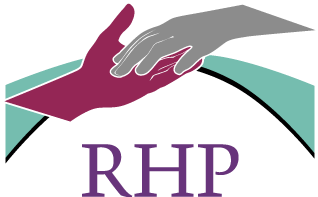If you’re are seeking help from Alcohol addiction, we can help. Alcohol abuse is a widespread problem. Alcohol is the most widely abused substance across most of the world. Because alcohol is legal and very much associated with celebration and holiday rituals, it is difficult to avoid being exposed to it.
Drinking creates euphoria and lowers inhibitions. This combined with impaired judgment can trigger dangerous behavior and lead to legal trouble.
Impact on your health
Drinking too much alcohol on a single occasion or over time can cause health problems, including:
- Liver disease.
- Increased risk of cancer.
- Digestive problems.
- Heart problems.
- Diabetes complications.
- Erectile dysfunction
- Menstruation issues.
- Birth defects and miscarriages
- Bone damage.
- Neurological complications.
- Weakened immune system.
The difference between alcohol abuse and alcoholism is a matter of degree.
As an abuser, your first signs will more likely be neglecting responsibilities, so you can drink. For instance, you have to call in sick to work often because of hangovers, or you don’t spend enough time with your kids because you feel the need to go out drinking with friends.
An alcoholic is dependent on alcohol needs it to get through the day. They have a high tolerance, needing more and more drinks to feel any effect. Alcoholics also suffer from withdrawal and will drink to avoid the symptoms of withdrawal, which include anxiety, tremors, sweating, insomnia, nausea, depression, fatigue, headache, and irritability.
On your first visit we evaluate the degree of the alcohol use disorder and any address any concerns you may have about your drinking. We also do a comprehensive assessment to rule out health complications and then proceed with the various types of treatment you can benefit from.
Treatment for alcohol use disorder can vary, depending on your needs.
Our philosophy is rooted in the dual approach:
- There is no one-size-fits-all treatment
- We meet our patient where they are at in terms of motivation and progress from there together.
Treatment may involve a brief intervention, individual or group counseling, an outpatient program, or a residential inpatient stay. Working to stop the use of alcohol to improve quality of life is the main treatment goal and we help you every step of the way.
Based on the severity on your alcohol use disorder, the options include:
- Either a 3-5 days inpatient detox program to avoid the life-threatening withdrawal consequences of stopping alcohol cold turkey
- Or a slow tapering method mapped out by our providers and specifically tailored to your needs
- Or outpatient treatment under our guidance
Our outpatient treatment for alcohol use disorders consists of
- Medication such as Disulfiram, Naltrexone, Vivitrol or Campral that are oral or injectable medications.
- Psychological counseling. We evaluate the patient who present mood disorders, consult with close behavior health experts, and discuss options of cognitive behavior therapy and /or medications to correct those disorders so often associated with alcohol use disorders.
We offer each patient a comprehensive tailored approach to their alcohol use disorders.
We help patients decide what path to take – complete abstinence versus moderate drinking. We do so by discussing where the patient is in their resolve to change their behavior and the patient’s history and genetic background. The provider never makes this decision alone.
The provider recommends quitting when patient has:
- A family history of alcohol problems
- Attempted to drink less but is unable to stay within set limits
- A physical or mental condition that is caused or worsened by drinking.
- A medication that interacts with alcohol.
- The intent to become pregnant.
- Symptoms such as sleep disorders and sexual dysfunction
Each visit includes continuing education to learn about the science of addiction and:
- Learning skills and establishing a treatment plan with goal setting, behavior change techniques, use of self-help manuals, counseling. We teach patients to deal with cravings and recognize their triggers. It is easier to “avoid” than “resist” temptation
- Psychological counseling. Enlisting your family or spouse is an important aspect of a successful recovery and we encourage each patient to bring with them to their visit the people who are an integral part of their support system.
- Counseling and therapy for groups and individuals help you better understand your problem with alcohol and support recovery from the psychological aspects of alcohol use. We provide couple and family therapy as family support can be an important part of the recovery process
- Continuing support. Aftercare programs and support groups help people recovering from alcohol use disorder to stop drinking, manage relapses and cope with necessary lifestyle changes. This includes medical or psychological care or attending a support group.
- Spiritual practice as People who are involved with some type of regular spiritual practice often find it easier to maintain sober living








